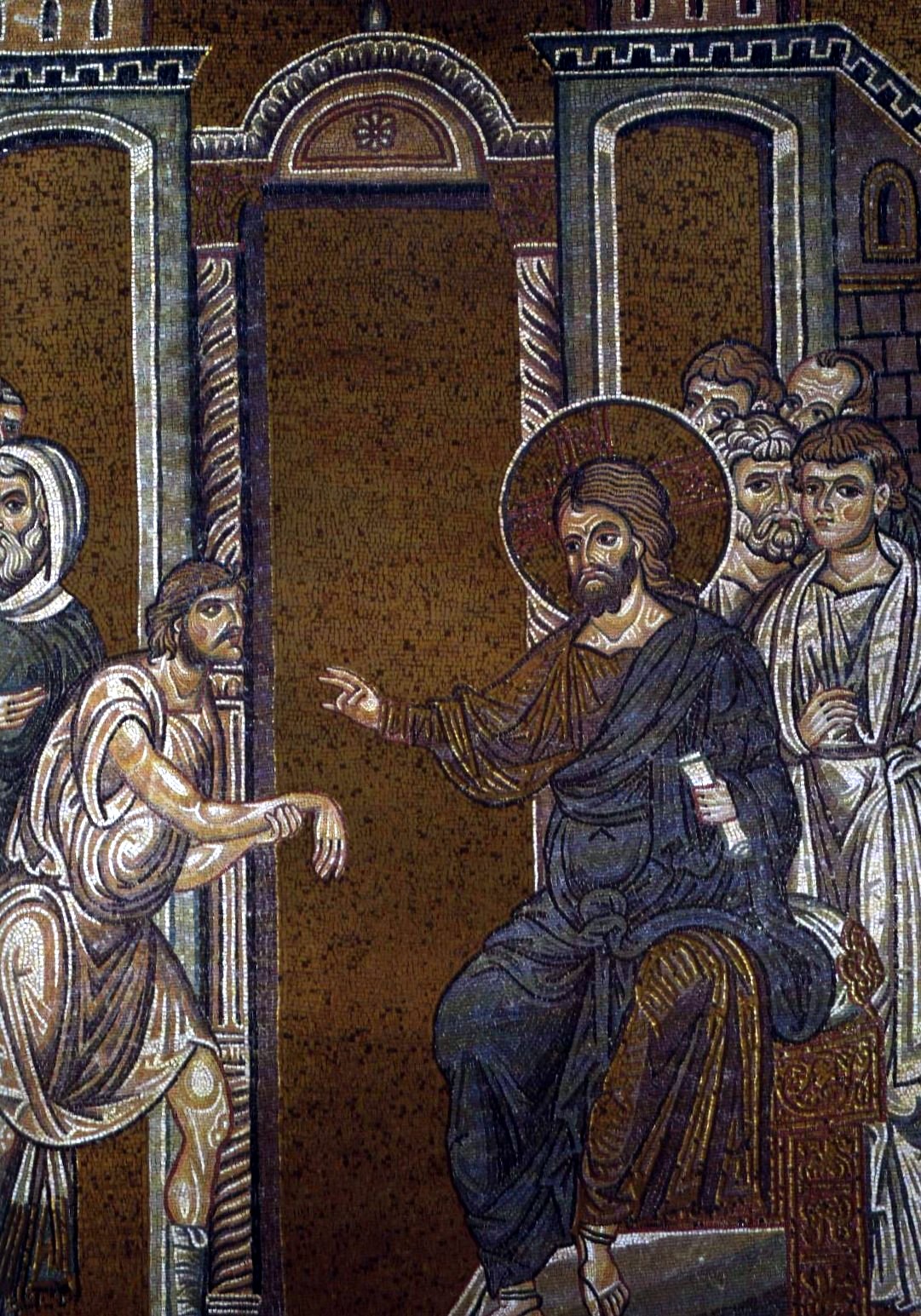Jesus Heals on the Sabbath
[The man with the withered hand]
6 On another Sabbath he went into the synagogue and was teaching, and a man was there whose right hand was shriveled. 7 The Pharisees and the teachers of the law were looking for a reason to accuse Jesus, so they watched him closely to see if he would heal on the Sabbath.8 But Jesus knew what they were thinking and said to the man with the shriveled hand, “Get up and stand in front of everyone.” So he got up and stood there.
9 Then Jesus said to them, “I ask you, which is lawful on the Sabbath: to do good or to do evil, to save life or to destroy it?”
10 He looked around at them all, and then said to the man, “Stretch out your hand.” He did so, and his hand was completely restored. 11 But the Pharisees and the teachers of the law were furious and began to discuss with one another what they might do to Jesus.
Observations & Reflections
The telling of Jesus healing the man with a withered hand also appears in Matthew 12:9-13 and Mark 3:1-6. As per usual, we should look to see how the stories stack up. The passage in Mark is almost verbetim with Luke’s copy of the story. Matthew is not much different excepting that it mentions a piece of the oral law in the middle of the discussion.
11 He said to them, “If any of you has a sheep and it falls into a pit on the Sabbath, will you not take hold of it and lift it out? 12 How much more valuable is a person than a sheep! Therefore it is lawful to do good on the Sabbath.” (Matthew 12:11-12)
The specific law that Jesus is citing is from the Babylonian Talmud and states thusly,
GEMARA. Rab Judah said in Rab’s name: If an animal falls into a dyke, one brings pillows and bedding and places [them] under it, and if it ascends it ascends. An objection is raised: If an animal falls into a dyke, provisions are made for it where it lies so that it should not perish. Thus, only provisions, but not pillows and bedding? — There is no difficulty: here it means where provisions are possible; there, where provisions are impossible. If provisions are possible, well and good;6 but if not, one brings pillows and bedding and places them under it. But he robs a utensil of its readiness [for use]?7 (Shabbat 128b)
The reason why Jesus cites with passage in the oral law is because it was common practice in Jesus’ time to rescue a valuable animal if it were in danger, even on the sabbath. Jesus’ wording is actually very precise when he says “lift it out”. The reason why this is so important is because the oral goes to great lengths to draw a division between helping and actually working. In Jeremiah and many sections of the Rabbinic law it states that lifting and carrying this is usually the dividing line.
Thus says the Lord, “Take heed for yourselves, and do not carry any load on the sabbath day or bring anything in through the gates of Jerusalem. (Jeremiah 17:12)
So the general allowance at the time was to look away if one needed to save a valuable ox but to be outraged if Jesus healed on the Sabbath. Yet, healing appears to be permissible in various occasions according to oral law.
an eye salve12 may be placed on the eye and a plaster on a wound and the process of healing continues all day.13 But wheat may not be placed in a water-mill unless it can be ground when it is still day. (Shabbat 18a)
It is hard to say what variation of these rules were in place when Jesus was on the earth but clearly Jesus’ goal was to point out the hypocrisy of the religious leaders who bend and break the laws according to their own desires and whims.
As always, Jesus was more concerned with the people than with the regulations of man. Keep in mind that these were not laws given by God but by man. Humans beings will ways be more valuable than keeping regulations of man. We must always remember that in Jesus’ kingdom, the well-being and love of our neighbors is paramount.
[Featured image titled “Christ heals the man with paralysed hand”. It is located at the Cathedral of Monreale.]
